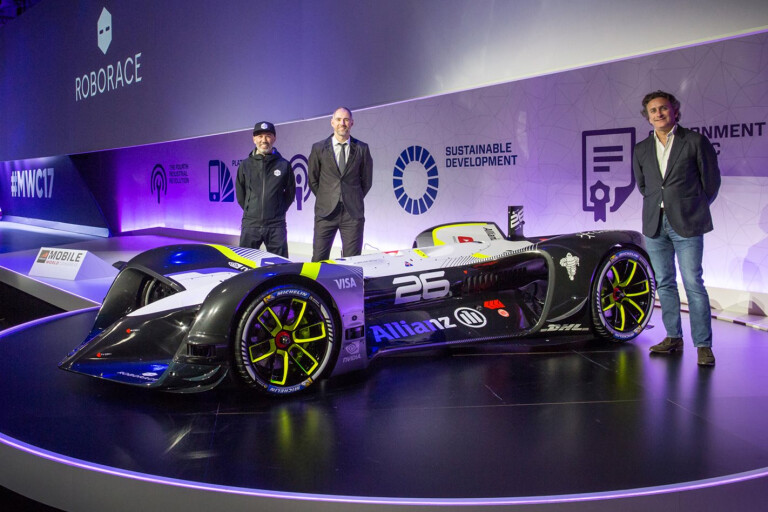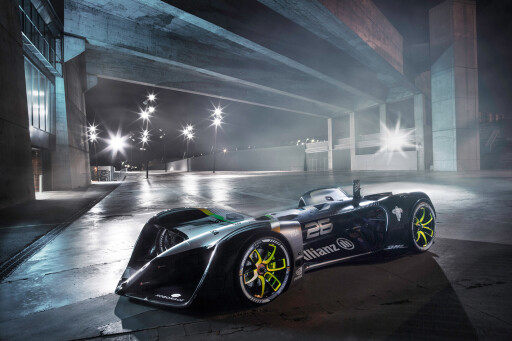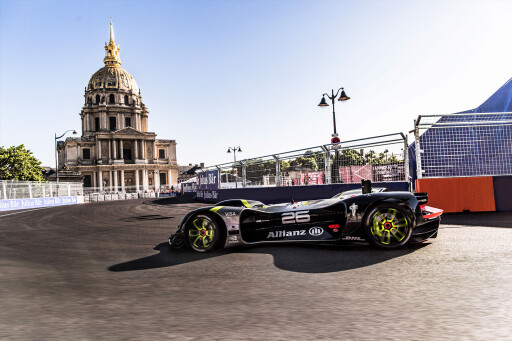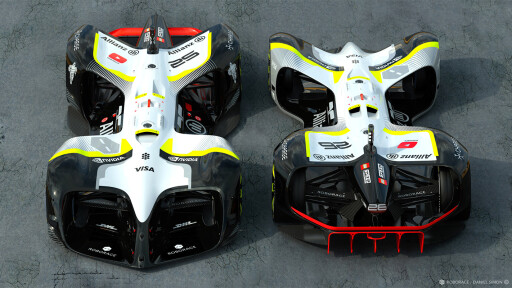
AUTONOMOUS cars are coming to our roads. But while the first self-driving road car could take a decade or more to become reality, there’s a faster version that’s poised to replace humans much sooner.
Lucas di Grassi is a factory Audi racing driver, and chief executive of Roborace, the company pushing to develop the world’s first autonomous racing series.
Roborace has already tested what it dubs ‘Devbots’ at rounds of the Formula E world championship. The cars aren’t breaking any speed records, but have successfully lapped various circuits without a driver behind the wheel – although, there have been a few metal-bending mistakes along the way, just like human drivers.

But Roborace’s intentions, and the growth of autonomous tech pose interesting questions for motorsport and the world of car racing: Could self-driving technology be implemented on the race track? How will it learn the track? Through human tuition, or deep learning algorithms?
di Grassi said removing the driver from the equation meant the robotic racers could then push the limits of what could be done in motorsport without risk to human life – one of the elements that makes motorsport so dangerous and exciting.
“I don’t believe in racing with them,” he told TopGear.com. “I believe you can go completely crazy.
“When there are no lives at stake, you can really go and do any kind of challenge you want.”

Those who have derided the idea of Roborace hypothesise that removing drivers from the equation – culling the unpredictable human element – would fast become the downfall of a self-driving race series. As a race driver with an illustrious career, di Grassi agreed.
“I don’t believe it would be exciting to the public to watch AI race itself,” he added. “But I think it would be exciting to see what AI could do in extreme scenarios. Basically, anything that motorsport cannot do, to showcase how precise and good this AI technology is.”
Motorsport without real-world relevance runs the danger of suffering a short shelf life, as viewers and manufacturers give it the cold shoulder. But di Grassi sees benefits for consumers from the development of capable, and importantly fast, self-driving race cars.
“You have so many cars on the market that have more than 1000bhp [476kW],” di Grassi said. “I drove the LaFerrari, the 918, the P1… all of them, the acceleration – after two seconds you’re over the speed limit.

“So how do you drive 1000bhp cars? You go to a track, and I think AI systems will allow amateur drivers to extract much more of the car than they currently can.”
Motorsport and road car technology have been intrinsically linked for as long as manufacturers were pouring money into going fast. di Grassi doesn’t see that changing any time soon.
“The industry in the long term will have a lot of autonomous cars. I believe that we need a niche in motorsport to promote this kind of technology,” he said.
This can already be seen in the likes of niche electric hypercar manufacturer Nio, which set an autonomous lap record – one that’s yet to be contested – at the Circuit of the Americas.
But don’t let reactionaries and nay-sayers fool you. The autonomous race series that di Grassi hopes to develop won’t leave regular racing drivers out of business, but instead allow manufacturers to invest in racing further, and develop road-going tech on the track.

COMMENTS